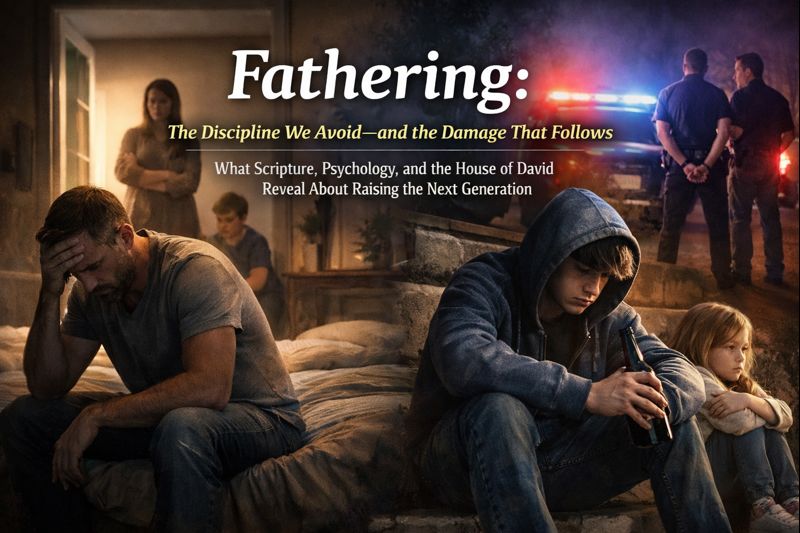
The Great Falling Away: A Wake-Up Call to the Church, John Kilpatrick’s Urgent Message
As division deepens and faith is tested, Scripture reveals a refining process that separates the Church from the Bride. The


As division deepens and faith is tested, Scripture reveals a refining process that separates the Church from the Bride. The

A prophetic word from Chuck Pierce points to an extended window of mercy for America—rooted in Isaiah 37 and the

Christmas was never meant to be shared. This article examines how cultural traditions and commercialization redirected attention away from Jesus—and

David’s family reveals a timeless warning: love without discipline doesn’t heal—it delays destruction. Scripture shows how parents can turn past

Brother Yun’s testimony in The Heavenly Man is a blazing reminder that true discipleship is forged through obedience, suffering, and

Did tithing end with the Law—or does it reach deeper into Abraham’s promise and Jesus’ call to discipleship? Scripture reveals

Scripture affirms eternal conscious torment for the unsaved, warning against diminishing hell’s reality. Embracing this truth magnifies God’s grace and

A neurosurgeon shares miraculous stories of Holy Spirit-led surgeries and scientific evidence for tongues, showing how faith in Christ brings

America faces an unprecedented wave of church closures. Yet in a small rural town, one church’s story reveals that

In a culture of anti-intellectualism and experientialism, believers must give legitimate answers to why we trust the Bible as a

When God fulfills His prophetic promises, chaos often comes first. This article reveals how turmoil, judgment, and transition prepare the

The Holy Spirit isn’t trying to make you paranoid — He’s trying to protect your calling. Learn how to

This article pairs psychological research with biblical prophecy to expose how chemicals, digital super-stimuli, and cultural inversion are collapsing modern

Mary and Joseph knew Jesus was God’s Son, but they didn’t yet know He was the Lamb of God. What

Wrestling has become the most visibly Christian sport in America, from NCAA champions boldly praising Jesus to Hulk Hogan publicly

Five Things We Will Learn: A Life Wired for the Gospel Right from the start, faith wasn’t an add-on in my world—it was the air we breathed. Picture this: My

This step-by-step EveryDollar walkthrough shows you how to build your first budget, track spending, pay down debt, and use funds

Five Things We Will Learn Two Judgment Seats: Understanding the Bema and the Great White Throne Scripture shows us that Jesus Christ presides over two distinct judgment seats, each with

A sweeping prophetic word declares that a multi-wave, global glory outpouring has already begun. Creative miracles, supernatural renewal, and glory

When God plants an idea in your heart, “no” is not the end of the story. In this inspiring profile

In coming turbulent days God is preserving a generation of David-hearted pastors who will love His people with lifelong loyalty,